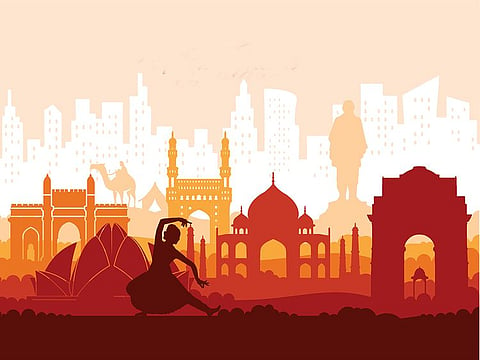How South and North India can benefit from each other
The north-south economic debate needs to be had with a sense of fraternity

In India, the entire top leadership of the Karnataka Congress, led by chief minister Siddaramiah himself, are protesting in Delhi against what they said was fiscal discrimination by the centre.
The main argument is that South Indian states contribute a large amount of taxes through the national Goods and Sales Tax but get very little of it in return. The poor North Indian states get a lion’s share. Uttar Pradesh and Bihar, in particular, get a lot more than what they contribute.
This feeling is actually quite widespread in south India, at least among the educated urban class.
Liberty, Equality, Fraternity
Firstly, it is true that wealth is being transferred from richer states to poorer states through both direct and indirect taxes. This is not a problem, it is a solution. It is a solution to regional inequality.
Those in south India who make this argument should ask themselves a simple question: is north India not your country?
If north India is your country too, then you can’t really object to such redistribution of wealth. Poorer Indians, and poorer regions, must be given a leg up by the rich. That’s the whole point of taxation. Just as wealth is redistributed from Bengaluru to Kalaburgi, it is redistributed from Karnataka to Bihar.
There is no politics here. The financial devolution formula is not determined by the central government but by a fairly autonomous finance commission. In fact, this regional redistribution is one of the objectives of the Goods and Sales Tax. Did you not see the word socialist in the Preamble to the Constitution?
That some South Indians think this way shows how another word in the Preamble has some travelling to do: fraternity, ‘the feeling of friendship and support between people in the same group’.
Or, as we say in Delhi, ‘Tu bhai nahi hai?’ Are you not my brother? Apologies for breaking into Hindi, and no, we are not insisting that South Indians speak Hindi. Feel free to reply in Kannada but please provide translation in brackets.
Note that Maharashtra is another wealth-creating state which gets back less than what it contributes in taxes. But we don’t hear Maharashtrians complain about wealth redistribution.
Turning the tables
As Bharat Bhushan has pointed out, in the initial decades after independence the north was richer than the south. It may be difficult to believe this, but Bihar was once among the richest states in the country. Wealth was once being transferred from north to south and nobody in south India objected.
As for the separation argument, even if it is only being made for shock value, South Indians must think this through. Is there nothing they get from the north? How about affordable labour? Nothing like business and economy to bring about some organic national integration.
If Tamil Nadu has car factories it is because the cars made there have a large national market. If south India were a different country, would they have the heft that comes from being part of the world’s most populous nation, one of the world’s largest economies?
A healthy debate
This is a healthy debate, one of economic competition between states. South Indians are not wrong in asking what’s wrong with the north. They are also not wrong in feeling that they are being punished for better governance, for being more business friendly, for investing more in education and health, and for reducing their population growth rates.
South India would do better by asking tough questions of the North, lending a helping hand with their experience, and demanding the north spend the money more wisely.
For example, south India can teach Uttar Pradesh and Bihar how to bring down population growth rates by increasing access to maternal health services. They can teach the north a thing or two about the value of providing English medium education to the poor, or about giving incentives to private education players to expand technical education.
After all, the north is your country too.




